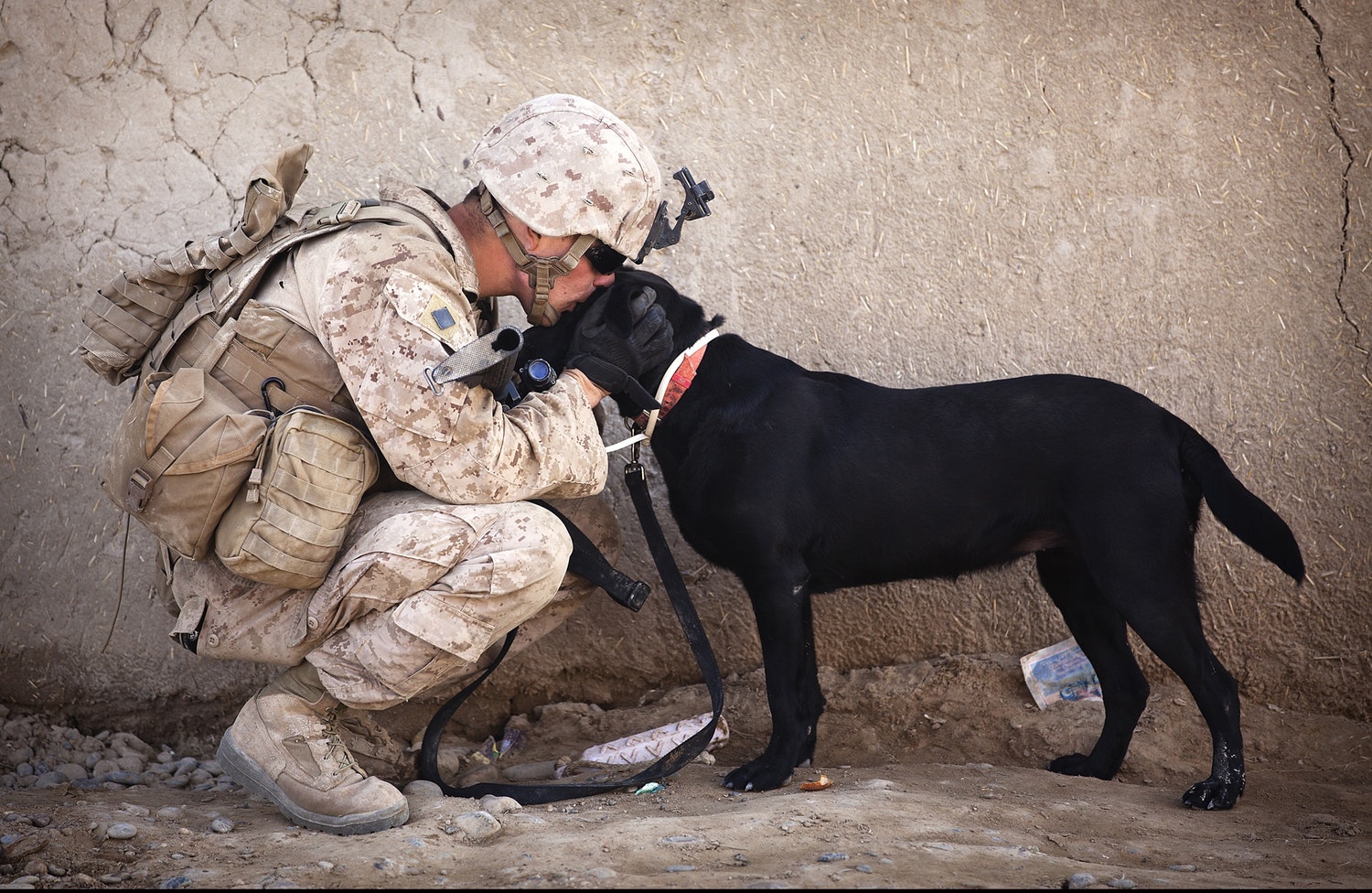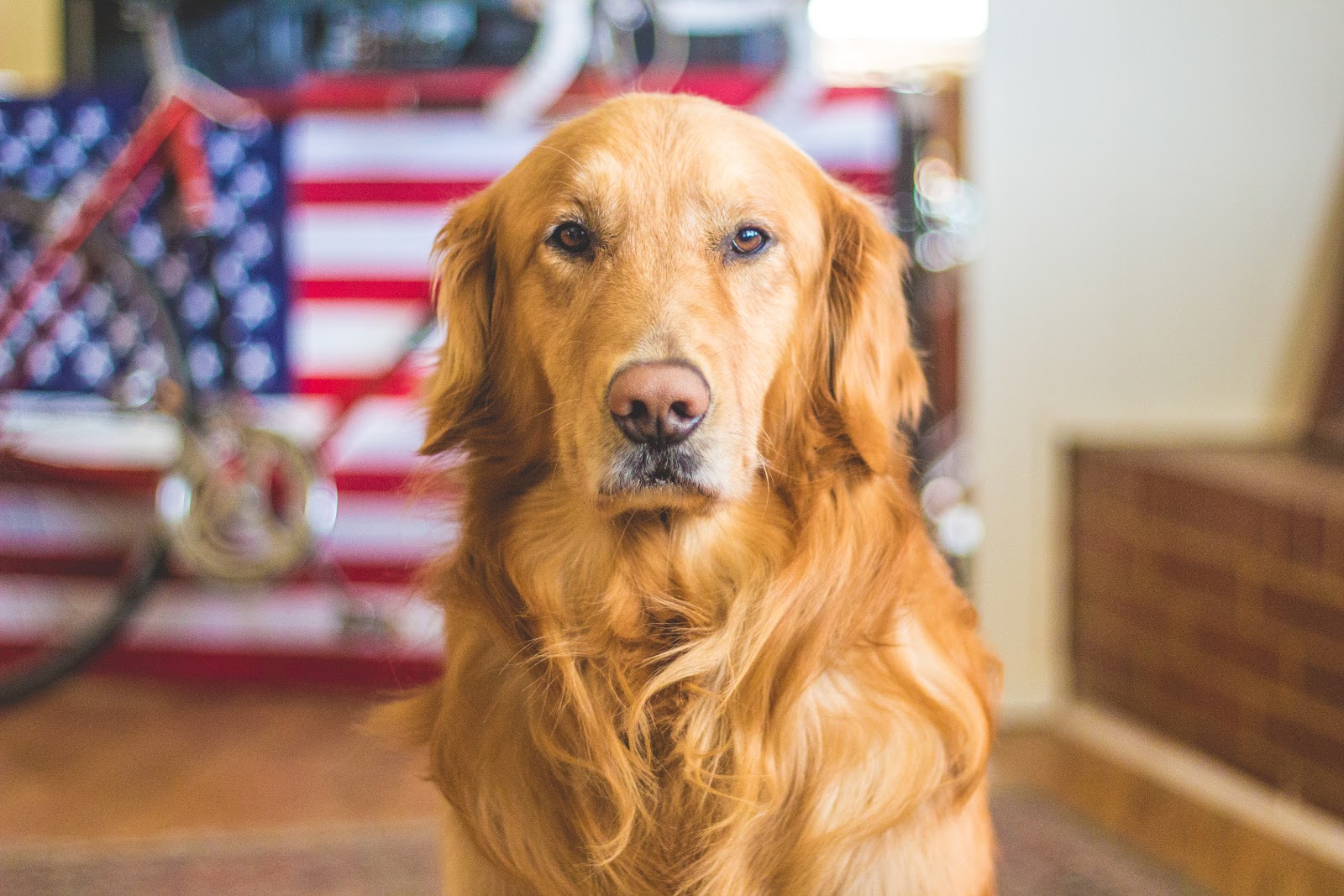The comforting effect of canine affection spreads much farther than mere pet love. In fact, AAT (Animal – Assisted Therapy) is a growing trend that shows amazing results in fighting different types of psychological and social disorders, from ADHD, and depression, to showing benefits in dealing with Alzheimer’s disease.
Heartwarming stories about the strong and healing relationships between PTSD-affected veterans and service dogs have shown encouraging examples of the power of animal-human interaction. They’ve also revealed how beneficial dogs can be in soothing symptoms of this common psychological disorder many ex-soldiers are coping with. Let’s take a closer look at how dogs can help veterans with PTSD.

Image via Pexels
The underlying problem with PTSD
Post-Traumatic Stress Disorder, often shortened to PTSD, is a widely common psychological disorder diagnosed in people who have at some point experienced a trauma or a series of traumatic situations.
Soldiers returning home have been one of the main profiles prone to this type of chronic illness, due to the high-stress and dangerous conditions of war they’ve been exposed to, like the death of their fellow soldiers, life-threatening confrontations, guilt and pressure, and lack of control and decision-making, etc.
Veterans with PTSD can find it difficult to return to their daily routine. They often suffer depression, insomnia, suicidal thoughts, loneliness, anxiety and can even develop OCD (Obsessive-Compulsive Disorder). Substance and alcohol abuse are unfortunately sometimes the result of desperation and inability to cope with this tiring disorder.
Dogs against sadness: The amazing biomedical changes
So, how can dogs help in treating PTSD? Recent findings have shown exciting results concerning the long-term effectiveness of living with a service dog. Spending extensive time with a dog specifically trained to provide comfort and compassion in times of distress and anxiety leads to a higher production of the hormone ‘cortisol’. Essentially, the more cortisol you produce (especially upon awakening), the better your mental wellness and happiness.
Further research has shown evidence that “the neurotransmitter phenylethylamine – which can improve mood – is released in both the animal and the human during positive encounters between species” ( Odendaal & Lehmann, 2000). Both the dog and the patient, by working on their relationship, develop a positive association with each other, which, in the long run, can significantly improve PTSD veterans’ coping mechanisms.
Stress and anxiety: The psychological benefits of a service dog
The unconditional and endless compassion a dog can provide is true medicine for the soul. Dogs can be trained to offer their back for patting, a welcoming paw, a companionship that develops into a friendship. This is highly beneficial not strictly in treating, but definitely in relieving symptoms of depression, severe loneliness, and anxiety, thus altering the whole perception of life and future.
In cases of hyperarousal in PTSD, patients can also be controlled with service dogs. Often in cases of a traumatic flashback (recalling images of past traumas), patients will experience severe distress, hypertension, and emotional arousal that can be soothed and calmed down with the dog’s presence. Focusing on the present, stroking, and playing with a four-legged friend slowly reduces the anxiety and refocuses the patient on the present moment.

Photo by Caleb Fisher on Unsplash
Being pushed back to reality: The importance of socialization
Sadly, the image of war veterans in nursing homes with little or no family to care for them or visit is often a recurring theme. Many retired soldiers upon reaching a certain age face the reality of loneliness and constant solitude. For PTSD sufferers, this can be detrimental in the long term. The positive social effects of dog therapy on the elderly are amazing and can cover a range of social problems. With PTSD patients, the positive changes in daily routines, such as walking the dog, providing care, and a sense of obligation are great for regaining purpose and responsibility for those who need that kind of support.
Moreover, according to the speech therapy experts at Better Speech, human-animal interaction is also fantastic for those with PTSD who suffer from stammering and stuttering as a side effect: “Finding someone patient who will listen is extremely important for those with speech impediments or difficulties, and therapy animals or pets allow their owners to talk freely without worrying about getting the message across. Having this opportunity to talk and feel listened to is crucial in coping with this complex disorder.”
What’s more, dog owners are more likely to meet other dog lovers and make connections based on the same interests. The richer and more fulfilled their social life is, the more focused, self-confident, and motivated for the future the PTSD veterans will get.
Which dog breeds make the best dogs for veterans?
As companion animals, any dog can be trained into a service dog. That said, some breeds perform better at providing emotional support.
Golden Retrievers, Border Collies, and similar breeds that are considered intelligent and friendly at the same time are the most easily trainable and adaptable. German Shepherds, for example, can create a perfect blend of physical and emotional assistance. Training a German Shepherd is easy and always effective due to their famous obedience, intelligence, agility intrinsic focus, and determination.
They make loyal and very protective companions, which is very useful for those in need of non-stop affection and friendship. This breed is also known for pleasing and responding positively to command and instruction. Their build requires a lot of movement and action, so their owner will need to spend a lot of time outdoors – just what PTSD patients need to implement for better healing.
Final thoughts
Although they may not be the complete solution to treating PTSD, dogs, and service dogs are undeniably a stepping stone towards complete recovery, especially when it comes to dealing with the underlying aspects of this psychological problem, like anxiety, stress, loneliness, and depressive behaviors.
DOGTV is also a way for pets and pet parents to spend quality time with one another in a relaxing and anxiety-reducing environment. Sign up for a FREE trial of DOGTV today.
Guest post by Emma Williams

